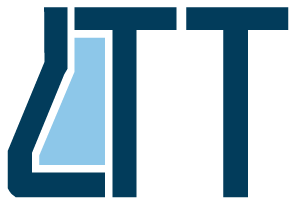“Our focus is on empowering Aboriginal groups to conduct fisheries research that can support both sustainable practices and economic development… This survey has been a big step forward in transfer of knowledge from Aboriginal traditional fishing methods and Western science and policy making.”
In partnership with the Government of Western Australia’s Department of Primary Industries and Regional Development (DPIRD) and the Land and Sea Management Unit of the Karajarri Traditional Lands Association, nearly twenty Karajarri Rangers completed a four-day mud crab and finfish research survey training program. Participants received a Certificate of Completion in Mud Crab and Finfish Training, issued by LTT.
A celebration photo at the end of the Karajarri training workshops
To facilitate the workshops, researchers and trainers from DPIRD and LTT travelled to the Bidyadanga Community - affectionately known as ‘Bidgy’, located south of Broome in Western Australia’s Kimberley region. Focused on scientific data collection methods for field surveys of shark and fish species, the program was designed to enhance the capacity of Aboriginal communities to oversee their own marine resources, with the ultimate goal of establishing an Aboriginal-owned mud crab fishery in the region.
Emphasising the critical skills required to manage sustainable and commercially profitable fisheries operations (e.g. survey design, marine species classification, and data management), the training also covered:
Mud crab trapping
Morphometric measurement-taking
Tissue collection for genetic analysis
Water quality sampling and more.
DPIRD scientist Dr. Al Harry demonstrating finfish dissections
Mutual knowledge exchange between the scientists and Karajarri Rangers, as well as the rangers’ enthusiasm for the program, was noted by Dr Johnston:
“This training is a big step in merging traditional fishing knowledge with Western scientific methods… The rangers were very collaborative and genuinely interested in understanding the fishery species in their waters… They provided valuable cultural knowledge of the region and shared traditional fishing methods, enriching the scientific process.”
Listen to Asad Khan’s interview with Dr Danielle Johnston, courtesy of Ngaarda Media:
Native Title covers over 90% of the Kimberley, and Traditional Owners are advocating for opportunities, such as commercial fishing rights, to unlock the region’s potential for improved socio-economic outcomes for local Aboriginal communities. With backing from DPIRD, the program offers a strong model for Aboriginal-led fisheries.
DPIRD's Natalie Travaglione with Karajarri ranger Andre Kitty
By integrating traditional ecological knowledge with contemporary scientific methods, the initiative fosters a sustainable and culturally-informed approach to fisheries research and operations. The Karajarri Rangers are set to play a pivotal role in the region’s resource management - stay tuned!



